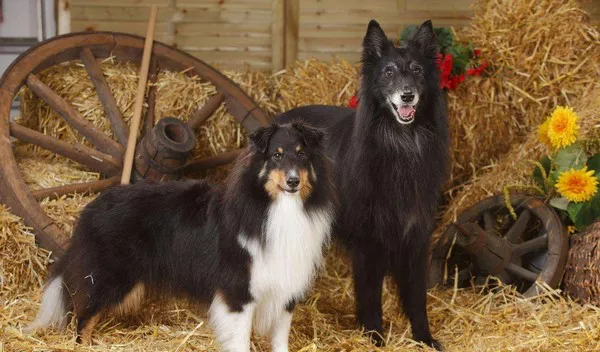Guinea pigs, also known as cavies, are small, social rodents that make for wonderful pets. They are often chosen as companions due to their gentle nature, low maintenance, and unique vocalizations. As a pet owner, it’s important to understand what guinea pigs eat and what they should avoid to ensure they stay healthy and happy. One common question that arises is whether guinea pigs eat meat. This article will explore their dietary habits, provide an understanding of their nutritional needs, and clarify whether meat is appropriate for guinea pigs.
Understanding the Guinea Pig’s Diet
Guinea pigs are herbivores, meaning they thrive on a plant-based diet. Unlike some animals that have evolved to eat both plants and animals (omnivores), guinea pigs have specialized digestive systems designed specifically for processing plant material. Their diet consists of a variety of fresh vegetables, fruits, hay, and pellets that provide the essential nutrients for their health.
This diet is rich in fiber, which aids in their digestive process, helping them maintain healthy gut bacteria and preventing issues such as constipation or bloating. As herbivores, guinea pigs do not have the ability to process animal products like meat, and feeding them meat can cause serious health problems.
The Importance of Fiber in a Guinea Pig’s Diet
Fiber is one of the most important components of a guinea pig‘s diet. Guinea pigs need a high-fiber diet to keep their digestive system functioning properly. Their long, complex digestive tract is well-equipped to handle large amounts of fibrous plant material, which helps them break down food efficiently.
The fiber in hay is particularly crucial, as it promotes the necessary chewing activity that keeps their teeth trimmed. Guinea pigs’ teeth grow continuously, and if they don’t chew enough, their teeth can become overgrown, causing pain and potential health issues.
Key Foods for Guinea Pigs
1. Hay: The Staple of Their Diet
Hay is the most important part of a guinea pig’s diet. High-fiber hay, such as timothy hay, is essential for their digestive and dental health. It is recommended that guinea pigs have access to hay at all times, as it provides them with a constant source of fiber and helps prevent boredom. Hay should make up the majority of their daily food intake.
Other types of hay, such as meadow hay or oat hay, can also be included for variety, but timothy hay is the most commonly recommended. Young guinea pigs (under six months old) can also eat alfalfa hay, which is richer in calcium, but once they reach adulthood, they should be transitioned to timothy hay to avoid kidney problems from excess calcium.
2. Fresh Vegetables and Greens
In addition to hay, fresh vegetables are an important part of a guinea pig’s diet. These provide essential vitamins and minerals that help maintain their overall health. Guinea pigs especially benefit from a high intake of vitamin C, which they cannot synthesize on their own. This makes vegetables rich in vitamin C an important addition to their diet.
Some good vegetables for guinea pigs include:
- Bell peppers (especially red and yellow, which are higher in vitamin C)
- Romaine lettuce (avoid iceberg lettuce as it has little nutritional value)
- Carrots (with greens)
- Kale
- Parsley
- Spinach (in moderation, as it is high in calcium)
- Cucumber
Fruits can also be given in moderation as treats, but they should be given sparingly due to their sugar content. Some popular fruits for guinea pigs include:
- Apples (without seeds)
- Strawberries
- Blueberries
- Oranges
- Pears
3. Pellets: A Supplemental Food Source
While hay should form the bulk of a guinea pig’s diet, specially formulated guinea pig pellets can be offered as a supplemental food source. These pellets are made from a variety of plant-based ingredients and are often fortified with important vitamins and minerals, such as vitamin C. It’s important to choose high-quality pellets that don’t contain added sugars, seeds, or artificial colors.
Pellets should be provided in controlled portions. Overfeeding pellets can lead to obesity and other health issues, so they should never be the primary food source, but instead a supplement to the guinea pig’s hay and vegetable intake.
Guinea Pigs and Their Inability to Digest Meat
Now that we have a basic understanding of the guinea pig’s dietary needs, let’s address the central question: do guinea pigs eat meat?
The short answer is: No, guinea pigs do not eat meat. They are obligate herbivores, meaning their body is specifically adapted to digest plant material, not animal products. This means that their digestive systems lack the necessary enzymes to break down meat and other animal-based foods. Feeding meat to guinea pigs can lead to serious health complications, and it is never recommended to include meat in their diet.
Why Guinea Pigs Can’t Eat Meat
Guinea pigs are unable to digest meat due to the following reasons:
Lack of Enzymes: Guinea pigs do not produce the necessary enzymes to break down proteins and fats found in animal products. Unlike carnivores and omnivores, which have specialized enzymes to digest meat, guinea pigs rely on plant-based enzymes to process plant cellulose and fiber.
Gut Flora: A guinea pig’s gut is populated with bacteria that help break down plant material. These bacteria are adapted to process fiber, sugars, and other compounds found in plants. Introducing meat into their diet could disrupt the balance of gut bacteria, leading to digestive problems like diarrhea or bloating.
Health Risks: Feeding meat to a guinea pig can lead to nutritional imbalances. Since their bodies are not equipped to process animal proteins, feeding them meat can result in liver damage, kidney stress, and gastrointestinal distress. Additionally, meat can be high in fats, which guinea pigs cannot properly metabolize, potentially leading to obesity and other related health conditions.
Common Foods to Avoid for Guinea Pigs
In addition to meat, there are other foods that should be avoided in a guinea pig’s diet due to their potential to cause harm. Some of these include:
1. Dairy Products
Guinea pigs cannot digest dairy products. Unlike humans and other animals that can process lactose, guinea pigs lack the enzyme lactase, which is necessary to break down lactose in dairy. Feeding dairy to guinea pigs can cause upset stomachs, diarrhea, and other digestive issues.
2. Nuts and Seeds
Nuts and seeds are high in fats and can cause obesity and digestive problems in guinea pigs. Additionally, some seeds (such as sunflower seeds) contain high levels of fat, which can lead to excessive weight gain if fed regularly.
3. Caffeine and Chocolate
Caffeine and chocolate contain compounds that are toxic to guinea pigs. Even small amounts of these substances can cause serious health issues, including heart problems, seizures, and even death. Therefore, these foods should never be offered to guinea pigs.
4. Onions, Garlic, and Other Alliums
Onions, garlic, leeks, and other alliums are toxic to guinea pigs. These foods can cause hemolytic anemia, which damages their red blood cells and can be life-threatening. Symptoms of poisoning include lethargy, weakness, and difficulty breathing.
5. Iceberg Lettuce
While lettuce is often part of a guinea pig’s diet, iceberg lettuce should be avoided because it has little nutritional value and can cause diarrhea due to its high water content. Romaine or darker-leaf lettuces are better choices.
Conclusion
Guinea pigs are strict herbivores and have a diet that revolves around plants, particularly high-fiber hay, fresh vegetables, and a limited amount of fruits and pellets. Meat is not suitable for guinea pigs due to their inability to digest animal proteins and fats, and feeding them meat can lead to severe health problems, including digestive distress and organ damage.
As responsible pet owners, it is essential to provide guinea pigs with a proper diet to ensure their health and well-being. By offering them a variety of fresh, nutrient-dense vegetables, high-quality hay, and specially formulated pellets, you can help your guinea pig live a long, healthy life. Always remember that the key to a happy guinea pig is a balanced and carefully chosen plant-based diet, and meat should never be a part of their feeding regimen.
Related Topics:





















